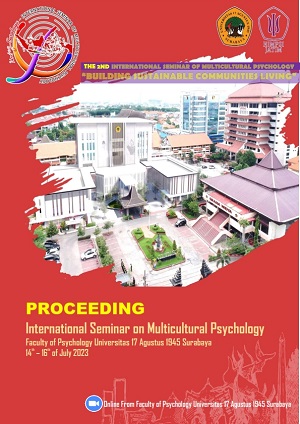Correlation Perception Of Workload And Emotional Regulation With Work Stress In Teachers
Abstract
Teachers are required to have the ability to carry out and succeed in the teaching and learning process with the curriculum that applies in schools. Whether or not a curriculum is implemented in educational institutions depends on the skills and ability of a teacher to understand the applicable curriculum. Changes in the curriculum make teachers tend to have unstable emotions and get angry easily due to confusion about the new education policy. Under these conditions, stress can be experienced by teachers. The purpose of this study was to determine the relationship between perceptions of workload and emotional regulation with teacher work stress. The subjects in this study were 87 teachers of public junior high schools in the Sidoarjo District who were over 50 years old. The method used is quantitative correlation with data collection techniques in the form of work stress scales, workload and emotional regulation that have met the validity and reliability test criteria. Data analysis used Spearman Rho's non-parametric statistics. The results of this study indicate that the correlation coefficient value is 0.902 (p<0.05) meaning that the perception of workload has a significant positive relationship with work stress. Meanwhile, emotion regulation has a correlation coefficient of -0.666 (p<0.05) meaning that emotion regulation has a significant negative relationship with work stress.
Keywords: Emotional Regulation ; Perceived Workload ; Work Stress






_(1).jpg)




